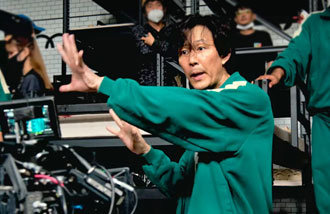Justice delayed is justice denied
Justice delayed is justice denied
Posted September. 01, 2023 08:34,
Updated September. 01, 2023 08:34
As per Paragraph 3 of Article 27 in the Constitution of the Republic of Korea, all citizens shall have the right to a speedy trial. As a longer-delayed trial not only comes with a heavier burden on the involved parties but also makes it harder to expedite remedies for the victims, the Constitution stipulates that the court shall swiftly proceed to a trial.
Additionally, there are also other laws that detail the right to a speedy trial. The Civil Procedure Act, for example, states clearly that within five months of a lawsuit brought to the court, the sentence of a final judgment shall be pronounced. Likewise, the pronouncement of a sentence shall be rendered in the court of first instance within six months from the day on which prosecution has been instituted and in the review of the appellate court and the hearing of the final appeal within four months from the day of receiving the record of proceedings, respectively, according to the Act on Special Cases concerning Expedition of Legal Proceedings enacted in 1981.
However, in practical judicial settings, such relevant acts, although still theoretically enforceable, have long since ceased to be applied as law, causing delays in legal procedures. Even with such delay, no system would sanction judges for slowing down the trial process. Added to this, these merely declaratory statutes do not ensure that plaintiffs, defendants or the accused have any right to compel trials, or are compensated for any delay in proceedings. Even the Constitutional Court concluded in 1999 that the clause regarding the sentence being required to be pronounced within five months in the Civil Procedure Act is only an instruction that is not legally binding.
Similarly, per the Criminal Procedure Act, a sentence shall be pronounced on the day pleadings and arguments are closed, provided that a sentencing date may be set separately except in any extraordinary circumstances. This principle of requiring an immediate pronouncement of a sentence on the very day implies that the time pleadings should conclude a final judgment are closed and the prosecution seeks a sentence. This allows the court only to judge guilt or innocence and execute sentencing on the day, with a ruling to be written afterward.
However, this principle is rarely applied in real terms. Although the Criminal Procedure Act limits a sentencing date to be set separately to “extraordinary circumstances,” it happens habitually in the court. According to court records issued by the National Court Administration, only 11,202 out of 233,490 defendants receiving a first trial ruling in 2021 were sentenced on the same day. Simply put, only five percent were subject to the principle of an immediate sentencing on the same day.
Since Kim Myeong-su took office as Chief Justice of the Supreme Court of Korea in 2017, such delay has only worsened. Indeed, judges have become less motivated since the promotion to presiding judge at high courts was abolished for the sake of the so-called “democratization of the judiciary field,” and competent justices have left their jobs. The number of days spent on the first trial processing by the collegiate panels rose from 252.3 days in 2014 to 364.1 days in 2021. What’s worse, almost 120,000 cases were left unsolved for more than a year as of 2021. The prevalence of delay in judicial proceedings is also attributable to the fact that the chief judge reluctantly resolves such delay out of concern about criticism of the abuse of the right to judicial administration and that there is a growing awareness among judges of a better work-life balance.
The delay in trials has only been intensified by the adverse effects of the current judicial system under Chief Justice Kim. Even if a new head replaces him, trials will unlikely be expedited noticeably unless a legally binding law regarding the promptness of trials is put in place. Reportedly, Seoul High Court Senior Judge Lee Gyun-yong, recently nominated as the new Supreme Court chief justice, has constantly argued that laws should be enacted to regulate trial delays, just as in Germany and Japan. As a famous legal maxim goes, justice delayed is justice denied. The expediency of trial processing is defined as one of the citizens’ basic rights in the Constitution. This is where the government and the National Assembly should come into play to cooperate with the new chief justice on legislating relevant bills.
Headline News
- Conflict mounts over removing rebellion crime from impeachment bill
- 55 percent of Seocho apartment transactions in October involved property gifting
- Richer people live up to nine more healthy lives
- Zelenskyy claims N. Korean troops lost heavy casualties in Kursk
- Man City secures 2 consecutive wins with Haaland leading the charge







